Writing A Standard Operating Procedure Course
Writing A Standard Operating Procedure Course in Singapore
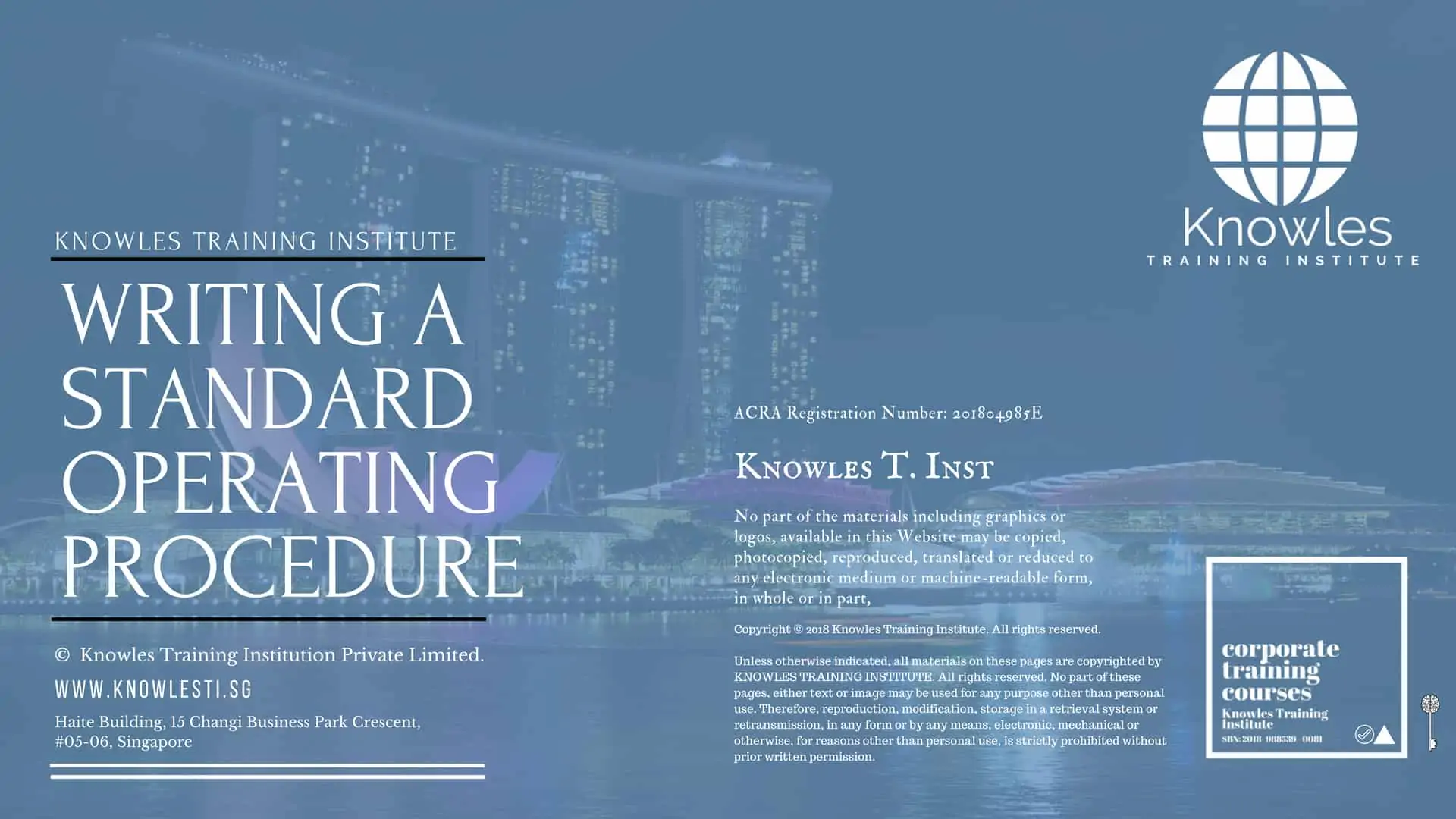
About This Writing A Standard Operating Procedure Training Course
Writing A Standard Operating Procedure Course in Singapore
When a budding business is aiming for organizational standardization, among the things it needs to accomplish is creating a list of standard operating procedures (SOP). An SOP is a set of best practices listed for employees to follow in order to achieve uniformity in how they do business within the company.
Who Should Attend This Writing A Standard Operating Procedure Workshop
This Writing A Standard Operating Procedure workshop is ideal for anyone who would like to gain a strong grasp on Writing A Standard Operating Procedure.
Business Owners
C-Level Executives
Executives
Managers
Team Leaders
Assistants
Officers
Secretaries
All Staff Within An Organisation
Group Size For This Writing A Standard Operating Procedure Training Program
The ideal group size for this Writing A Standard Operating Procedure course is:
Minimum: 5 Participants
Maximum: 15 Participants
Course Duration
The duration of this Writing A Standard Operating Procedure workshop is 2 full days. Knowles Training Institute will also be able to contextualised this workshop according to different durations; 3 full days, 1 day, half day, 90 minutes and 60 minutes.
2 Full Days
9 a.m to 5 p.m
Course Benefits
Below is the list of course benefits of our Writing A Standard Operating Procedure course
Minimise learning downtime for new employees.
Ensure each employee understand their roles and responsibilities.
Provides employees with clear direction to perform a job effectively.
Gain support from employees, upper management and stakeholders for your procedures.
Ensure consistency in the quality of duties performed.
Can be used for reflection and growth or an organization.
Delegation of tasks becomes easier
Course Objectives
Below is the list of course objectives for The Writing A Standard Operating Procedure Course
- Introduction to Standard Operating Procedure
- Analyse & Plan for You Standard Operating Procedure
- Designing Your Standard Operating Procedure
- Developing & Implementing Your Standard Operating Procedure
- Implementing Your Standard Operating Procedure
- Evaluate Your Standard Operating Procedure
- Review Your Standard Operating Procedure
- Maintaining Your Standard Operating Procedure
Course Content
Below is the list of course content of our Writing A Standard Operating Procedure training course
Introduction to Standard Operating Procedure
- What is a Standard Operating Procedure (SOP)
- Overview on How to create a SOP
- List 5 Benefits of a SOP
- What is the Purpose of an SOP
- Understand how you are going to present your SOP
- Example of a Good SOP and example of a Bad SOP
- Writing an SOP using an ISO-9000 template
Analyse & Plan for You Standard Operating Procedure
- Gathering data for your SOP
- Identifying your target ‘audience’ for your SOP
- Meet the ISO 9000 requirements of quality standards and compliance
- How to structure and organize the SOP
- What to add and what not to add
- Developing policies, procedure or instructions using a process template
Designing Your Standard Operating Procedure
- Formatting Your SOP in accordance with ISO-9000 template
- Use of effective writing style for SOP
- Editing and Re-editing your SOP
- Governance, content reuse, single sourcing and ownership
- Learning The lifecycle of SOPs
Developing & Implementing Your Standard Operating Procedure
- Effectively using Visual Images and aids in your SOP
- Some advanced techniques for improving your SOP
- Keeping Your SOP concise and accurate
- Developing logical ideas and flow of processes in your SO
- Use of flow-charts, process maps, images and diagrams
- Testing Your SOP
Evaluate, Review and Maintaining Your Standard Operating Procedure
- Evaluating your SOP
- Reviewing your SOP
- Revising your SOP
- Maintaining Your SOP
Writing A Standard Operating Procedure Value Added Materials
Each participant will receive the following materials for the Writing A Standard Operating Procedure course
Writing A Standard Operating Procedure Learner’s Guide
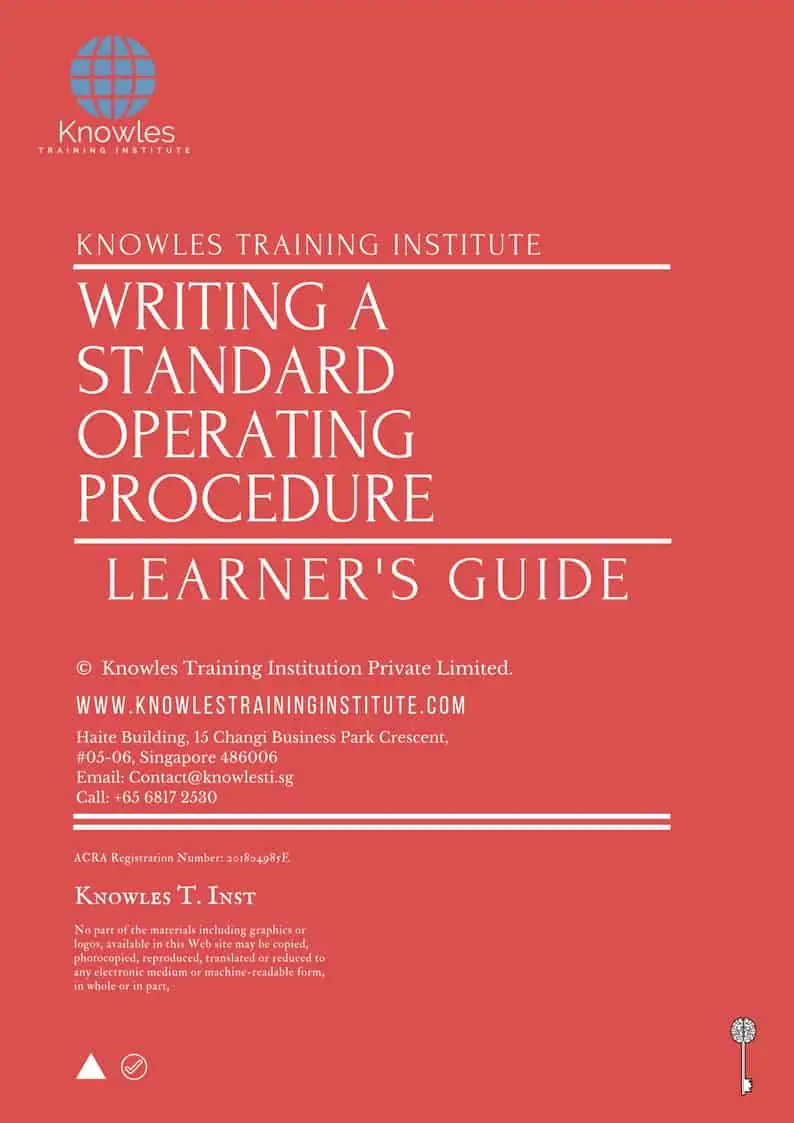
Writing A Standard Operating Procedure Key Takeaways Notes
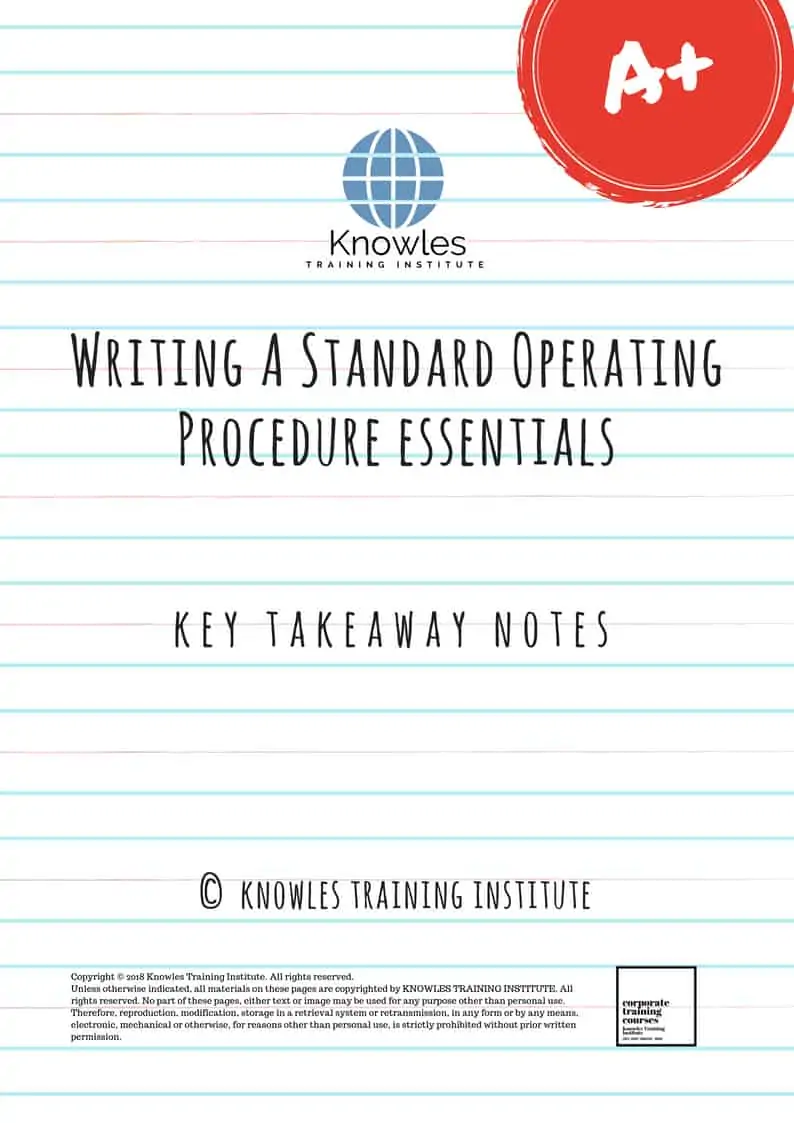
Writing A Standard Operating Procedure Essentials Ebook
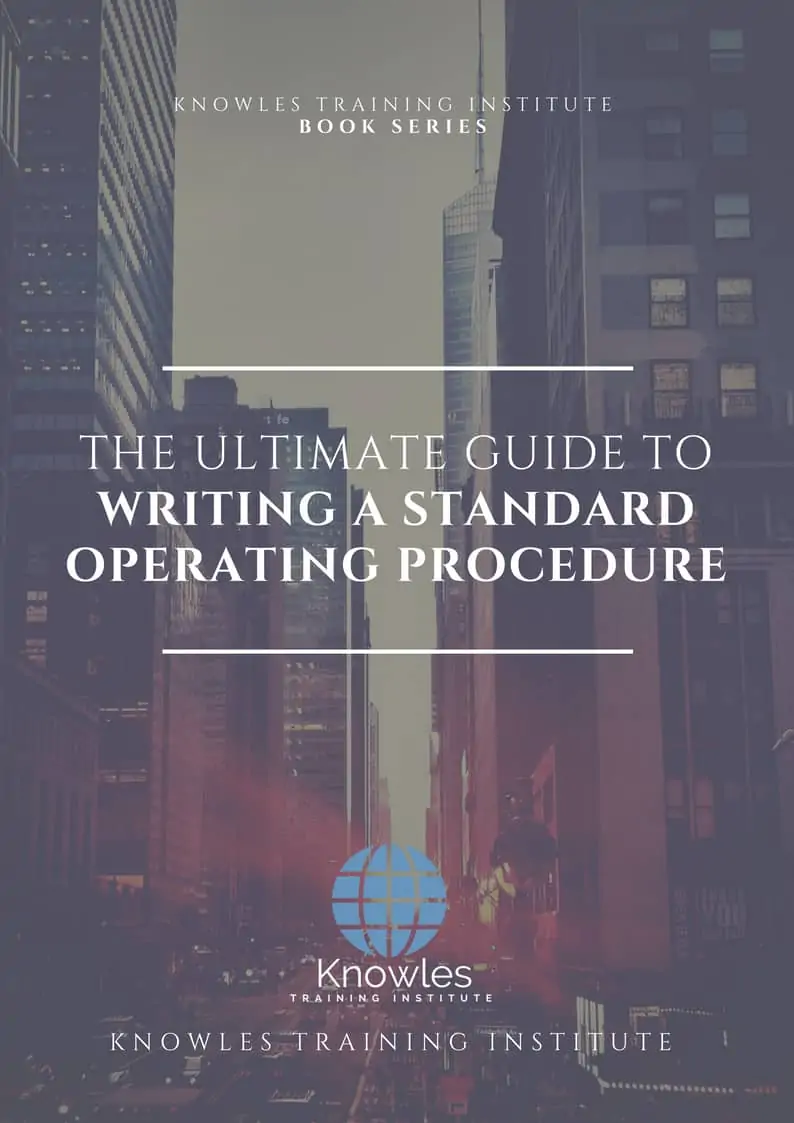
Writing A Standard Operating Procedure Course Handouts
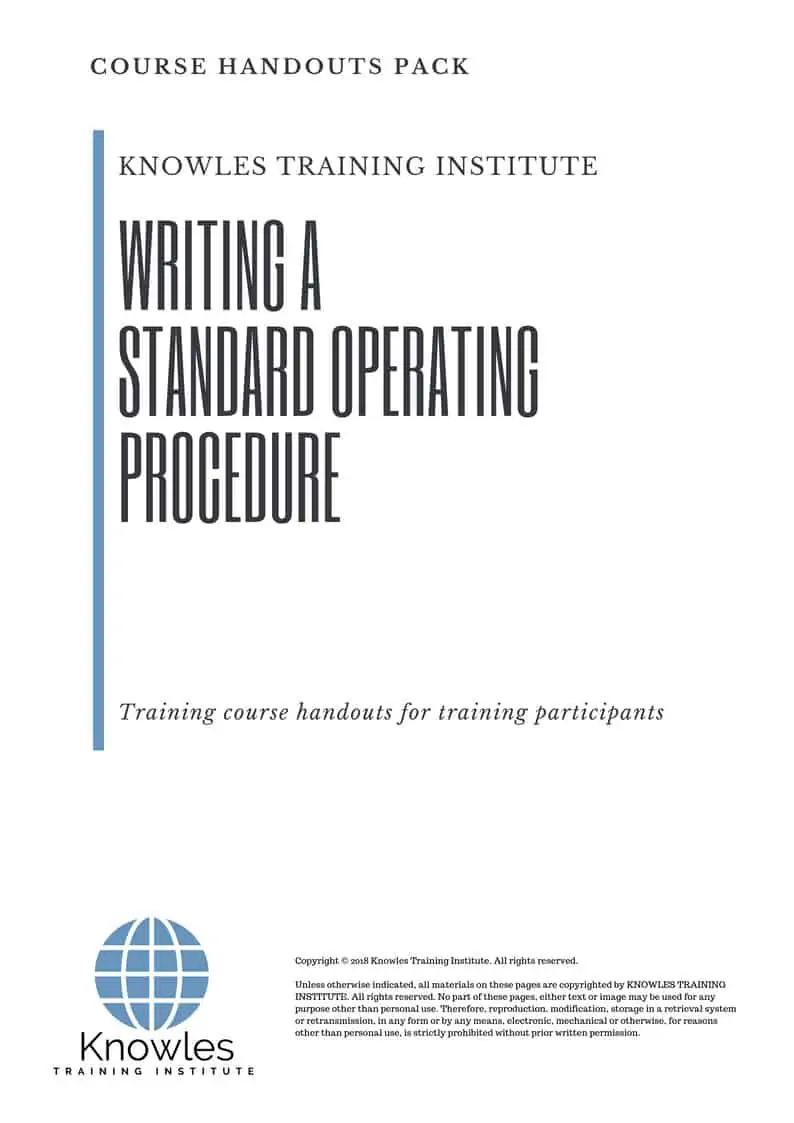
Writing A Standard Operating Procedure 30-Day Action Plan
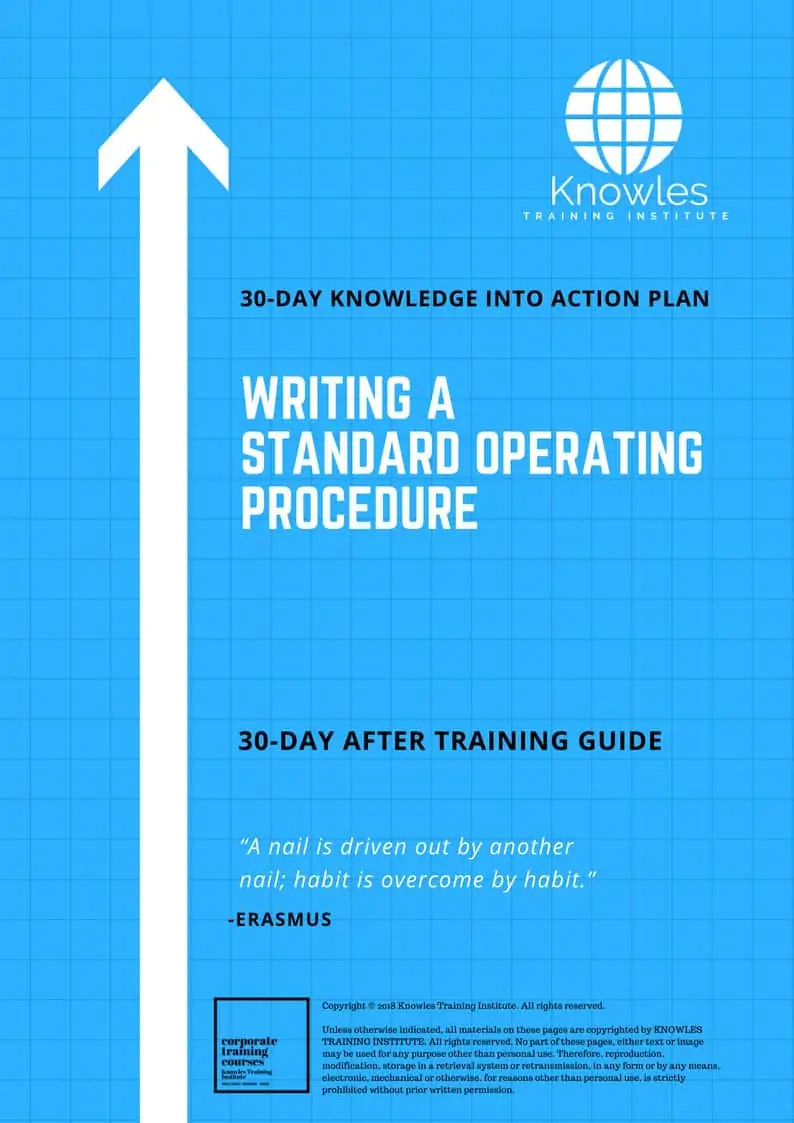
Writing A Standard Operating Procedure MindMaps Pack
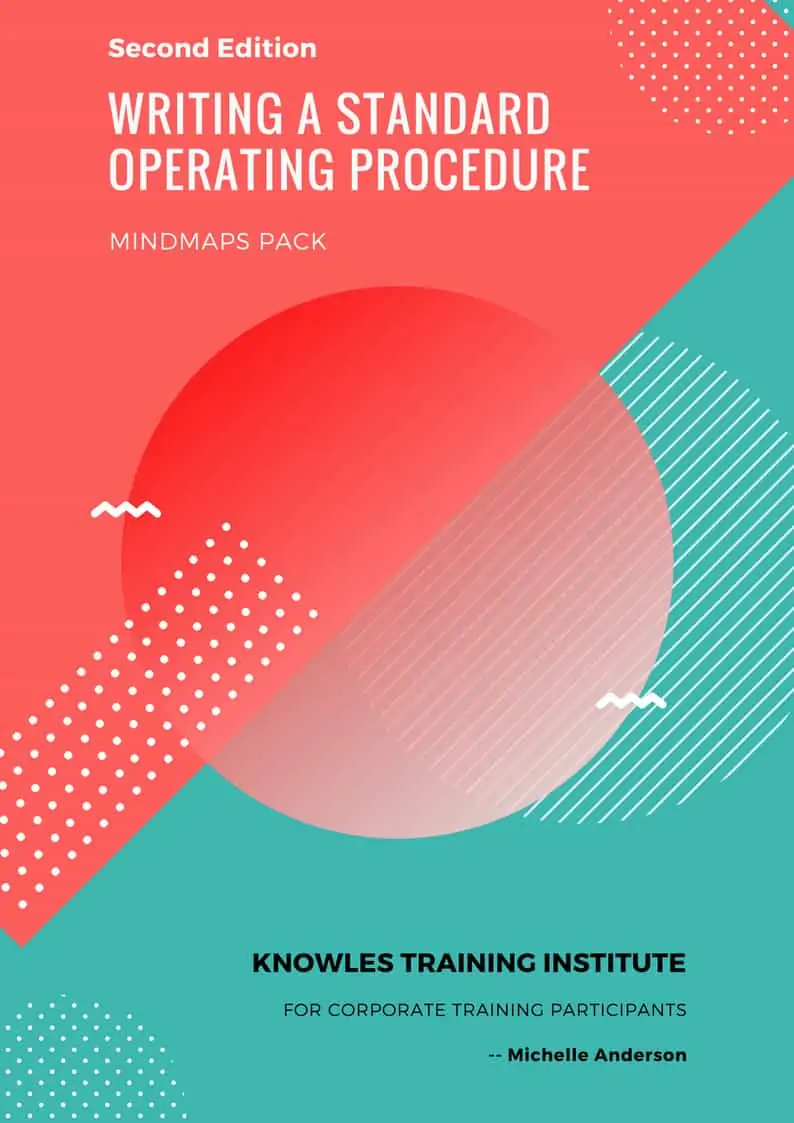
Writing A Standard Operating Procedure PPT Slides Used During Course
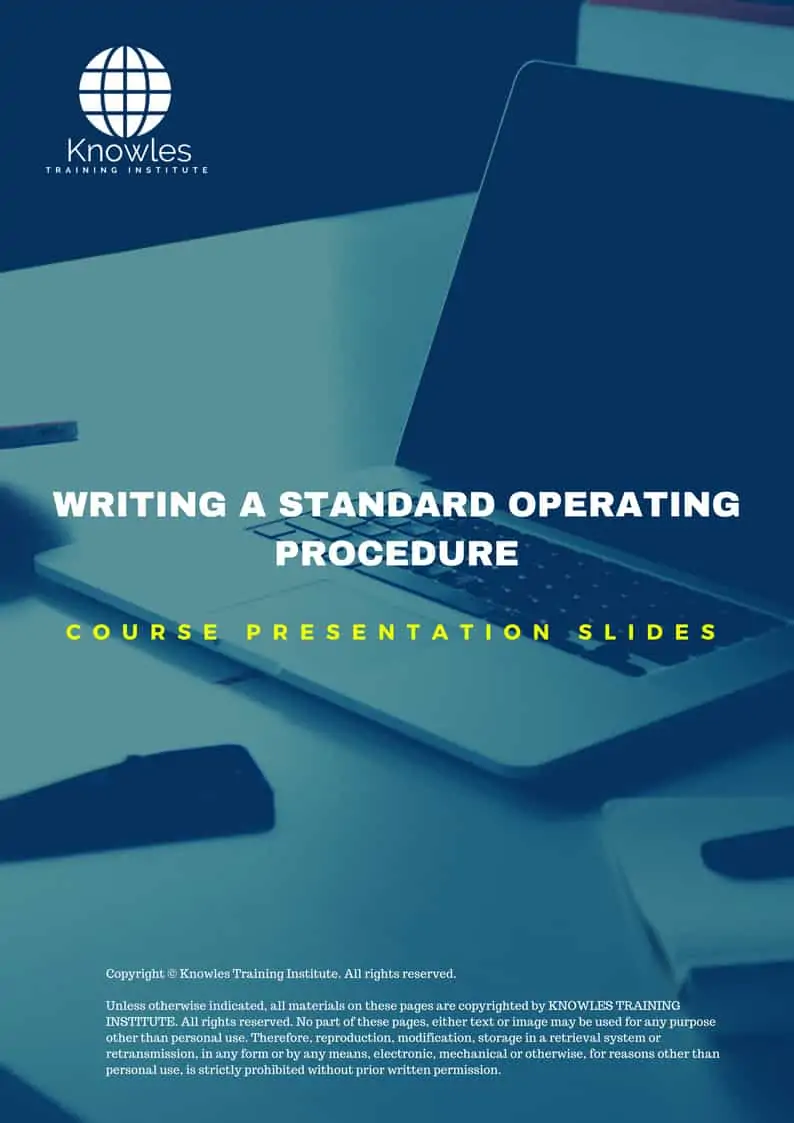
Writing A Standard Operating Procedure Long-Term Memory Flashcards Pack
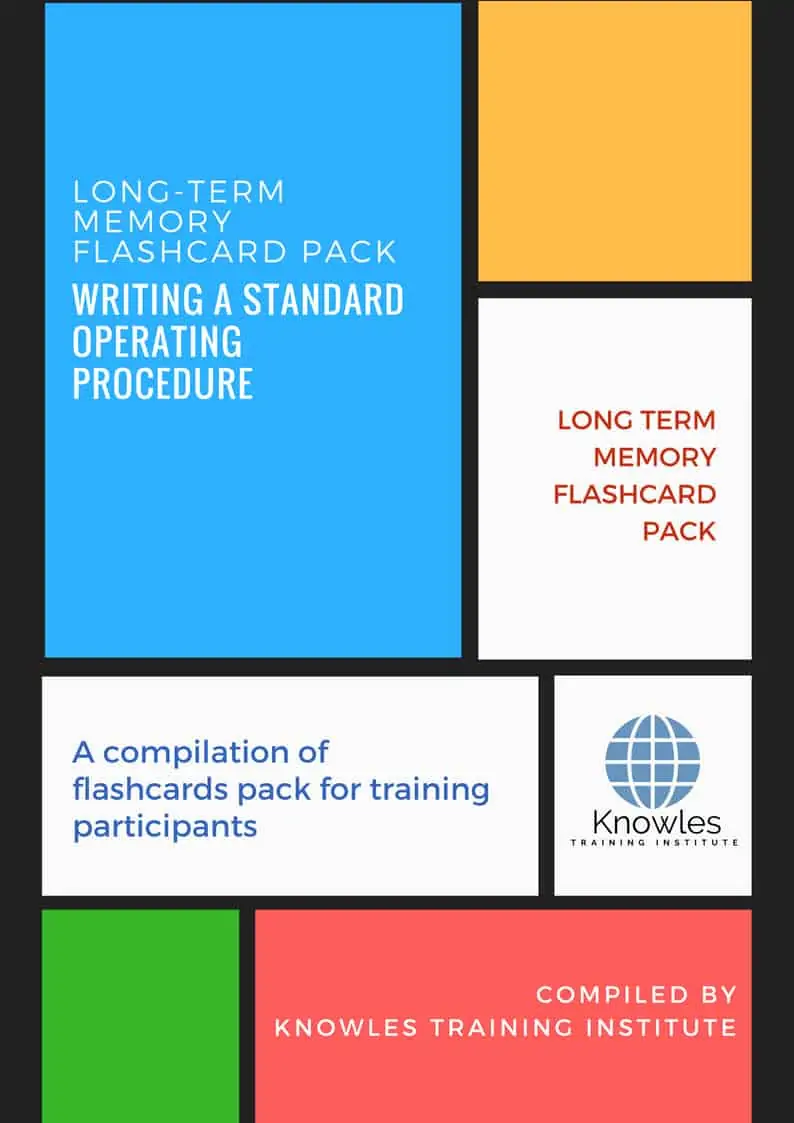
Writing A Standard Operating Procedure E-Learning Course
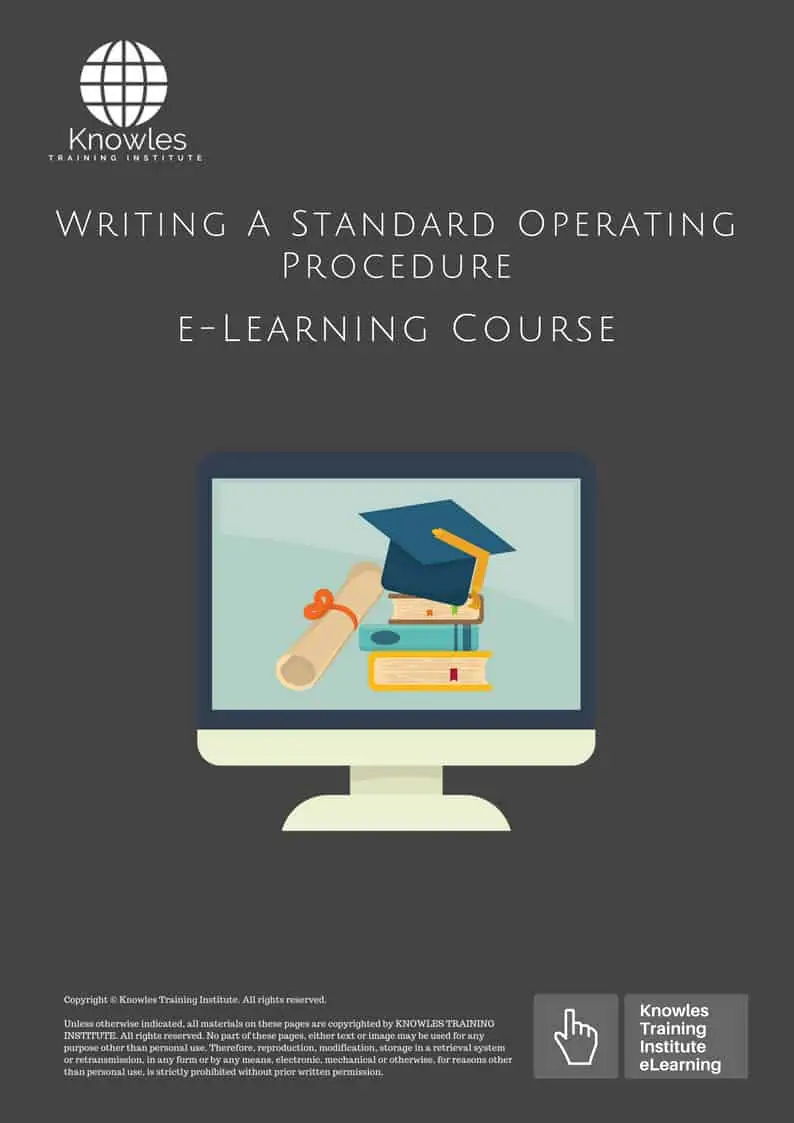
Writing A Standard Operating Procedure Online Video Course
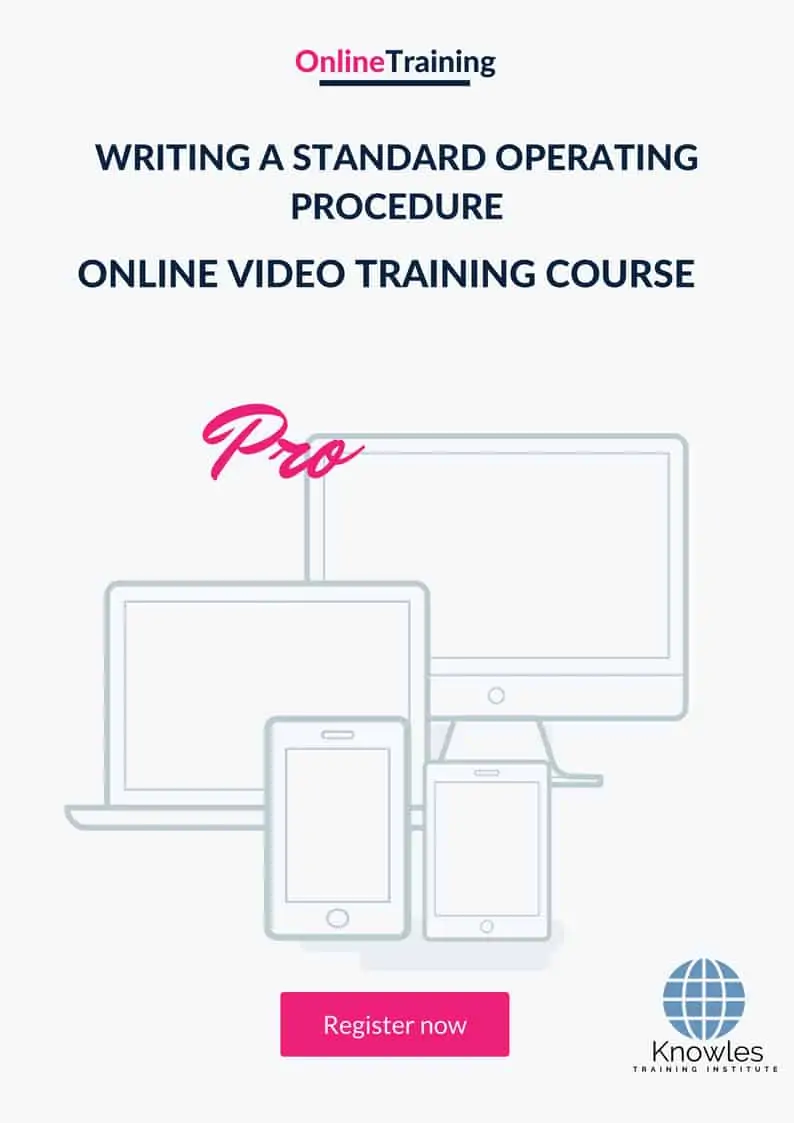
Writing A Standard Operating Procedure Essentials Audiobook
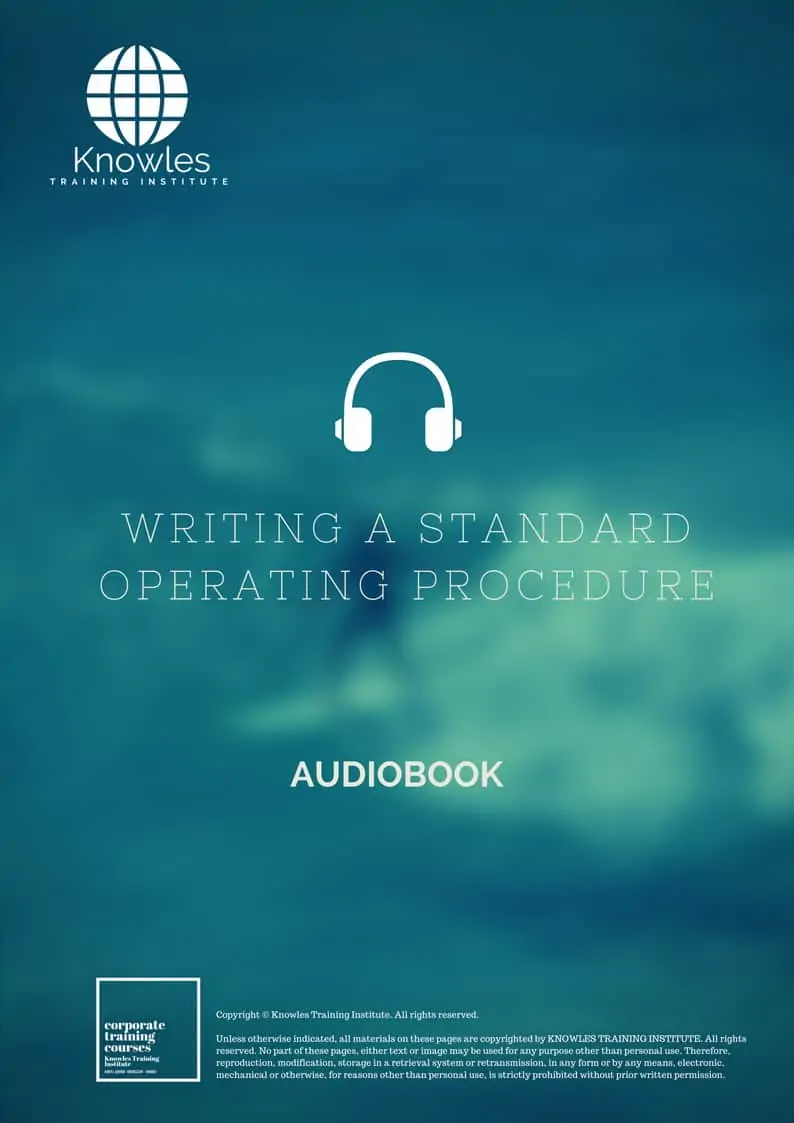
Writing A Standard Operating Procedure Infographics Pack
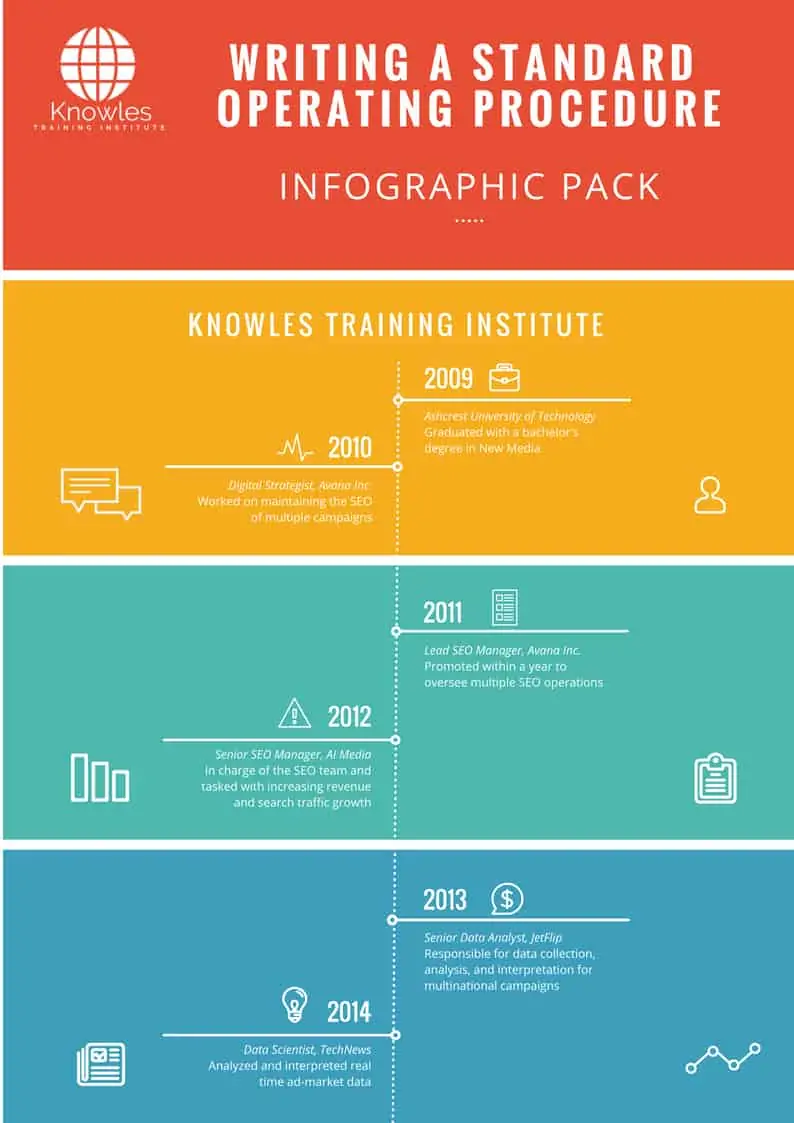
Writing A Standard Operating Procedure Certification
Each course participant will receive a certification of training completion
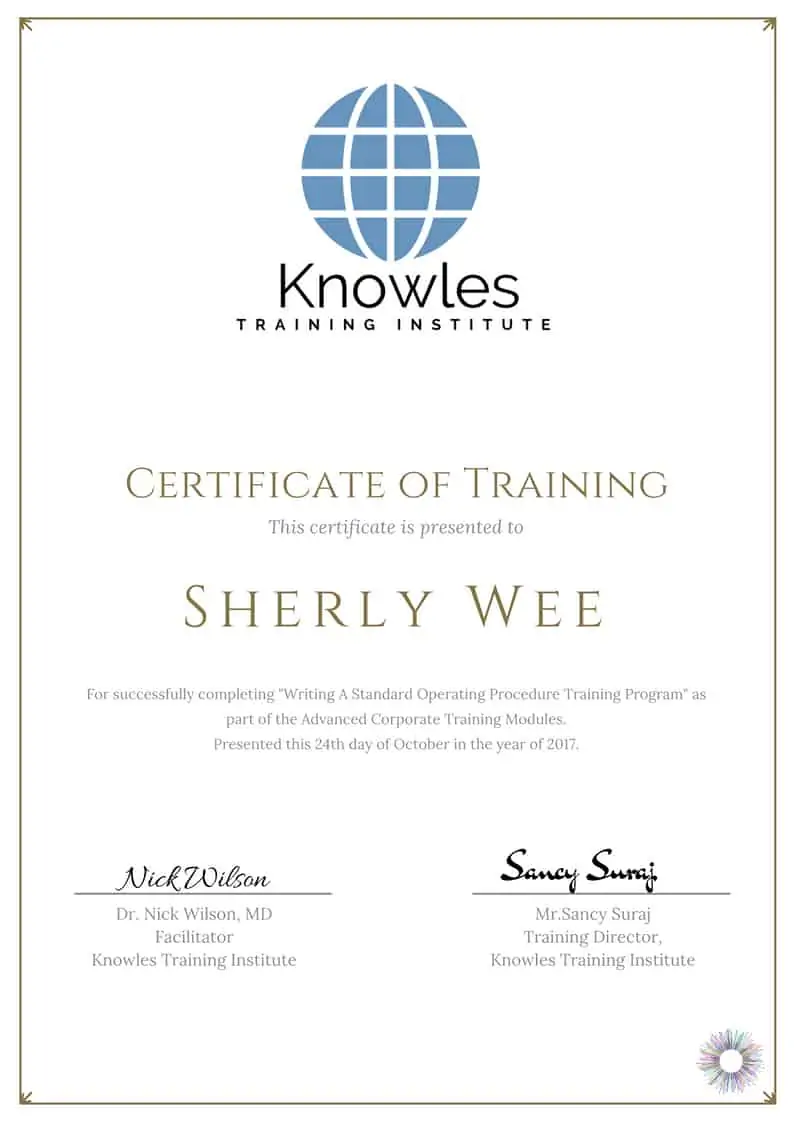
Course Fees
There are 4 pricing options available for this Writing A Standard Operating Procedure training course. Course participants not in Singapore may choose to sign up for our online Writing A Standard Operating Procedure training course.
- SGD 889.97 For a 60-minute Lunch Talk Session.
- SGD 389.97 For a Half Day Course Per Participant.
- SGD 589.97 For a 1 Day Course Per Participant.
- SGD 789.97 For a 2 Day Course Per Participant.
Discounts available for more than 2 participants.
Upcoming Course Schedule
Contact us for the latest Writing A Standard Operating Procedure course schedules:
Phone: +65 6714 6663
Email: contact@knowlesti.com
Message:
Download Course Brochure
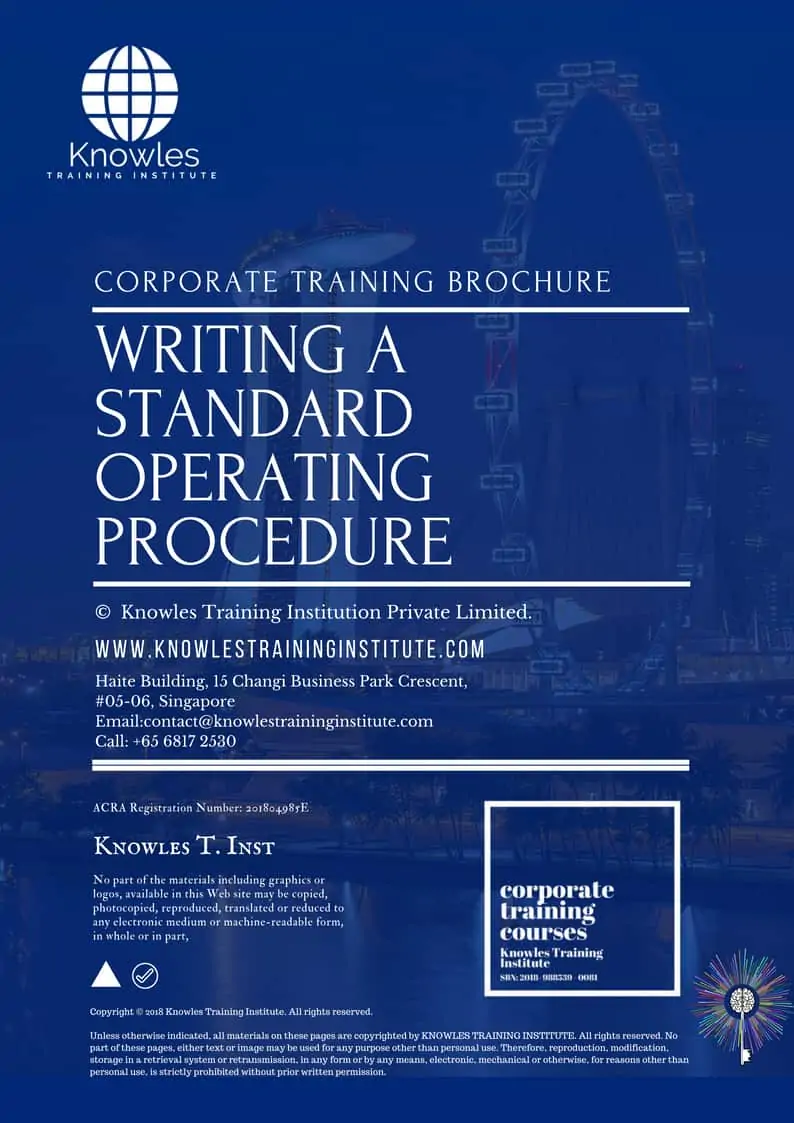
Request for this Writing A Standard Operating Procedure course brochure. Fill up the short information below and we will send it to you right away!
Post-Training Support: A vast majority of training does not have any effect beyond 120 days. But to work, training has to have a strong pre- and post-training component. Post-training reinforcement consequently helps individuals to recall the understanding and ask questions.
Blended Learning: Learning does not occur in the classroom. Virtually everybody prefers distinct ways of learning. Successful learning should have a multi-channel, multi-modal strategy.
We Understand The Industry: Similarly, we’ve got a profound comprehension of the business, business design, challenges, strategy and the that our participants are in and have designed the courseware to cater to their professional needs.
Course Content: Knowles Training Institute’s material is relevant, of high quality and provide specific learning outputs. As a result, Participants will leave the training course feeling as they have gained a strong understanding and will also be in a position to execute what they have learned sensibly.
Course Development — The workshop modules follow a systematic and logical arrangement. Therefore, this structure helps to ensure that the course material allows the facilitators to deliver the course in a logical arrangement. Consider the subjects as building bricks into learning, our facilitators slowly build towards a comprehensive picture of this entire topic.


Course Enquiries

Fill up the form and we will get back to you in less than 1 working day.
Alternatively, give us a call to have one of our training consultants contact you. Our corporate training courses can be contextualized to meet your organization’s training needs. Leverage on our large pool of professional trainers and consultants for your organization’s training needs.
Office Address: 60 Paya Lebar Rd, #07-54 Paya Lebar Square, Singapore 409051
Office Phone: +65 6714 6663
Email: contact@knowlesti.sg
We Guarantee 100% Privacy. We Respect Your Privacy. Your Information Will Never Be Shared.


